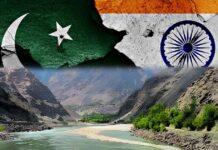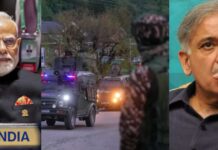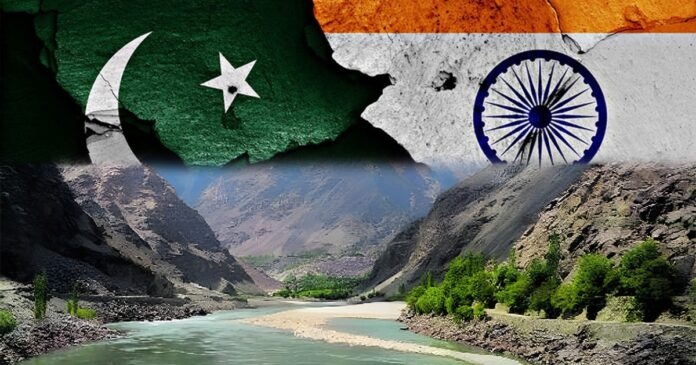Following a devastating attack on foreign tourists in Indian-occupied Jammu and Kashmir, India-Pakistan tensions have erupted once again. Not only has the Indian government accused Pakistan of blame without concrete evidence, but it has also suspended the Indus Waters Treaty, a decision that imperils regional peace and goes against international norms. Pakistan Refuses to Become a Scapegoat in Indian Politics.
This article dissects the emerging issue through the lens of business leaders, security experts, and political commentators in Pakistan, with a strong condemnation issued by Muhammad Azfar Ahsan, CEO of Nutshell Group, at the forefront of this conversation.
The Pahalgam Attack and the Kashmir Incident: A Timeline
Anonymous attackers struck Indian tourists in Pahalgam, Kashmir, on April 23, 2025. Following the attack, India did, what it does best: blamed Pakistan straightaway without investigating anything.
Indian politicians and media echoed nationalist feelings and demanded revenge. India suspended the Indus Waters Treaty afterwards as well as shut down the Atari-Wagah Border, actions that caused international concern.
Political analysts have characterised the suspension of the treaty as an internal political tactic and not a real security response, especially because the treaty has lasted 3 wars, and now India chooses to suspend it so easily.
Azfar Ahsan Speaks Out: Exposing Propaganda
Azfar Ahsan labelled India’s response a “staged drama.” He highlighted India’s habitual trend of accusing Pakistan without proof. Ahsan pointed out the remarkable similarities in the weapons used in the Balochistan and Kashmir attacks. He also questioned coordination and timing, calling upon the United Nations Security Council to carry out an impartial investigation and safeguard regional stability.
Masking Internal Crises with Anti-Pakistan Rhetoric
The fall of Sheikh Hasina’s administration in Bangladesh isolated India further. Experts think that India is now trying to deflect international attention by provoking Pakistan.
India faces internal unrest in Nagaland and Manipur, alongside rising tensions with neighboyring Nepal and Bhutan. Critics argue that the Modi government leverages nationalism as a tool to divert attention from these domestic challenges. At the same time, concerns grow over diminishing press freedom and democratic norms. Observers note a pattern of suppressing dissent at home while promoting a more aggressive stance abroad.
Read More: Who’s Behind the Deadly Kashmir Attack? 26 Lives Lost in Pahalgam Horror
Pakistan’s Business and Strategic Experts Speak Up
Industrial psychologist Syed Hussain condemned India’s dependence on social media drama. He stated, “No international statesman reads LinkedIn comments,” calling for genuine diplomacy.
CEO Haider Jawaid denounced the UN’s bias and compared India’s propaganda strategy to Israel’s behaviour in Palestine. His remarks indicate increasing distrust of global institutions.
Procurement expert Shoaib Khan described how this narrative serves both governments to divert citizens from domestic issues.
CEO Syed Umairuddin Hussain backed Azfar Ahsan and advocated for a more effective global narrative by Pakistan.
Fazal Abbas, a military veteran, appealed to the international community to intervene, saying that propaganda cannot be used as a substitute for peaceful dialogue.
Demand Truth, Not Tactics
India’s blame game and treaty suspension imperil regional peace. Azfar Ahsan and other experts demand accountability and facts. The international community needs to reject propaganda and uphold international norms.
Stay tuned to Brandsynario for latest news and updates






































